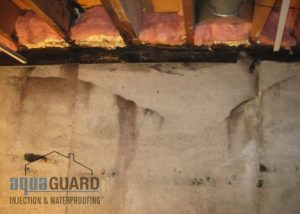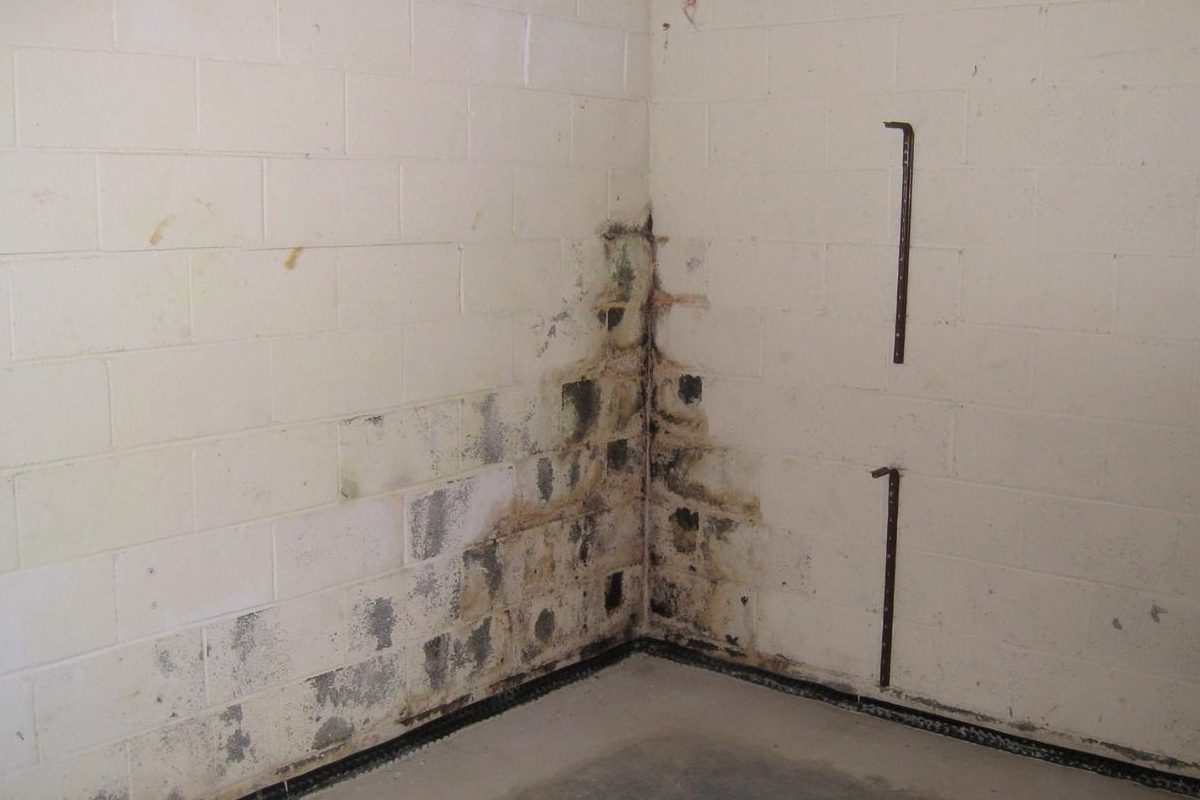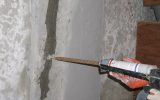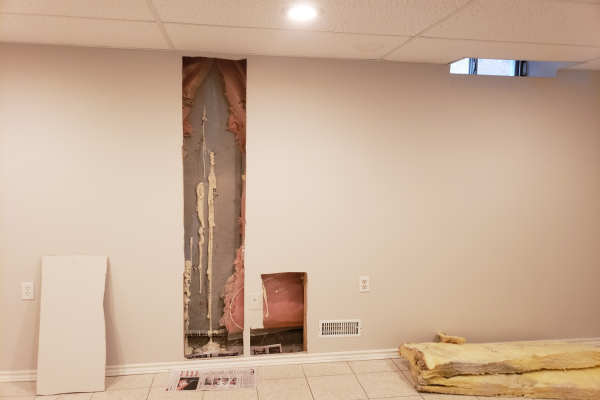Can You Fix a Basement Leak Yourself?
DIY projects are naturally very attractive to homeowners hoping to save money; when it comes to DIY basement waterproofing however, much like do-it-yourself plumbing, errors are typically very frustrating, destructive and costly. Therefore, you need to know how to fix a foundation leak properly, and you need to have the right tools, if you hope to fix a wet basement yourself.
Much like plumbing and welding, fixing basement leaks and foundation waterproofing is a specialty. While many home improvement and repair projects can be undertaken by the average person who has spent sufficient time researching tricks and techniques, repairing basement leaks and fixing cracks is not straightforward and forgiving as some Do-It-Yourself book / DIY crack injection kit vendors would have you believe.
Our basement is flooding and we’ve been up most of the night, is there anything we can do?
If you have a basement leak (from the walls only) that seems to be out of control, to avoid staying up all night mopping up water, you will want to try to stop the leak until it can be properly repaired (or you can call us to properly repair the leak on an urgent basis). While you may be able to stop the leak completely, you still need to have it repaired professionally; otherwise you will end up trapping water in the wall which will lead to the accelerated deterioration of your foundation walls over time.
Step one, of course, is figuring out where the water is leaking into the basement from. If your basement is finished you will have to open the drywall or remove panelling in order to see the foundation wall and the exact source of the leak.
For a quick concrete block leak repair, or poured concrete foundation crack repair, you can apply hydraulic cement over the leak; it is only a temporary measure but an effective one. Hydraulic cement can be purchased at hardware stores such as The Home Depot, Rona, and Canadian Tire. Be sure to use protective gloves as the cement will become surprisingly hot as you work with it; also, the pot life is very short (2-3 minutes) so you have to work fast. Note: as this type of repair is done on the negative pressure side of the wall (the inside), it will not withstand the test of time; therefore, even if you manage to stop the leak, you still need to have this professionally repaired as soon as possible.
Note: The application of tar, rubber, or cementitious coatings on the inside surface of your exterior foundation walls is, in our opinion, a big mistake. This approach to waterproofing a basement will trap water within the foundation walls which will lead to the accelerated deterioration of your foundation walls. This type of waterproofing repair is not long lasting, and you will adversely impact a professional waterproofing contractor’s ability in the future to assess the extent and type of basement waterproofing, and/or structural reinforcement, that is required.
I am planning on digging around my house and waterproofing the foundation myself
As you must excavate an exterior wall down to the footing, which is typically 6.5′ below grade, to repair the leak properly; the work itself is so demanding, particularly with clay soil, that you will likely regret trying to do it on your own. Furthermore, if you don’t do the waterproofing work properly, you will ultimately end up having to hire a waterproofing contractor to undo what you have done and redo it professionally.
Here are a few points to consider:
- Excavation carries the risk of soil cave-ins; if this occurs while you’re digging, your lifespan is expected to be 45 seconds;
- Whenever digging is involved there is always the risk that you will cut through a hydro cable, a gas line, telephone or cable line, sprinkler system water line, etc., and
- You need to address the drainage, damp-proofing and waterproofing aspects of the foundation repair; do you really understand what is involved? If you spend considerable time and money waterproofing your own foundation and you are ultimately unsuccessful, you will end up paying yet more money in the end and you’ll be very frustrated.
I am planning on buying a Do-It-Yourself (DIY) crack repair kit and inject my own basement cracks
While crack injection repairs are simple in principle, repairs can be quite difficult and there are numerous factors that you must take into account before deciding to spend your hard earned money on these kits.
Here are a few points to consider:
- There are two types of injection materials for basement crack repairs, epoxy and polyurethane. The characteristics of the crack itself dictate the injection material to use as well as the crack repair technique that will work best. In foundation crack injection, one size does not fit all.
- DIY injection kits are always low pressure (typically involving the use of a caulking gun); in some cases there may be insufficient pressure to ensure that the injected resin travels through the wall to the outside;
- The viscosity of the material that you are injecting must be appropriate for the size of the crack being repaired. If the viscosity of the injection resin is too low (resin too thin), the injected resin will drain into the soil outside and the repair will fail (for this reason the majority of foundation crack repair kits utilize polyurethane resin which solidifies rapidly);
- A do-it-yourself crack injection kit is not useable on an actively leaking crack; this is because the kit will require that you apply an anchoring paste over the crack which cannot adhere to a wet or damp wall surface;
- DIY injection kits are not suitable for repairing leaks in concrete block or cinderblock foundations because the blocks are hollow; and
- If there is mud or mineral in the crack, it is unlikely that your injection will succeed because the crack needs to be flushed prior to the crack injection, and you are not equipped to flush the crack through the thickness of the wall.
Note: If you have a leak originating from the top of the wall or from beneath a basement window frame, the use of hydraulic cement will entrap water along the framing and promote wood rot. See for yourself…

A significant amount of knowledge, skill and equipment is required to do basement waterproofing work; if Waterproofing Contractors cannot work without these prerequisites, how can you? Ultimately, the objective of doing waterproofing work yourself is to save money; don’t be fooled, you do not need to excavate around your home to properly waterproof your basement. To find out how to waterproof any foundation leak, view the List of basement waterproofing repair methods.
Be sure to read our companion blog post: Waterproofing basement walls – do it yourself







